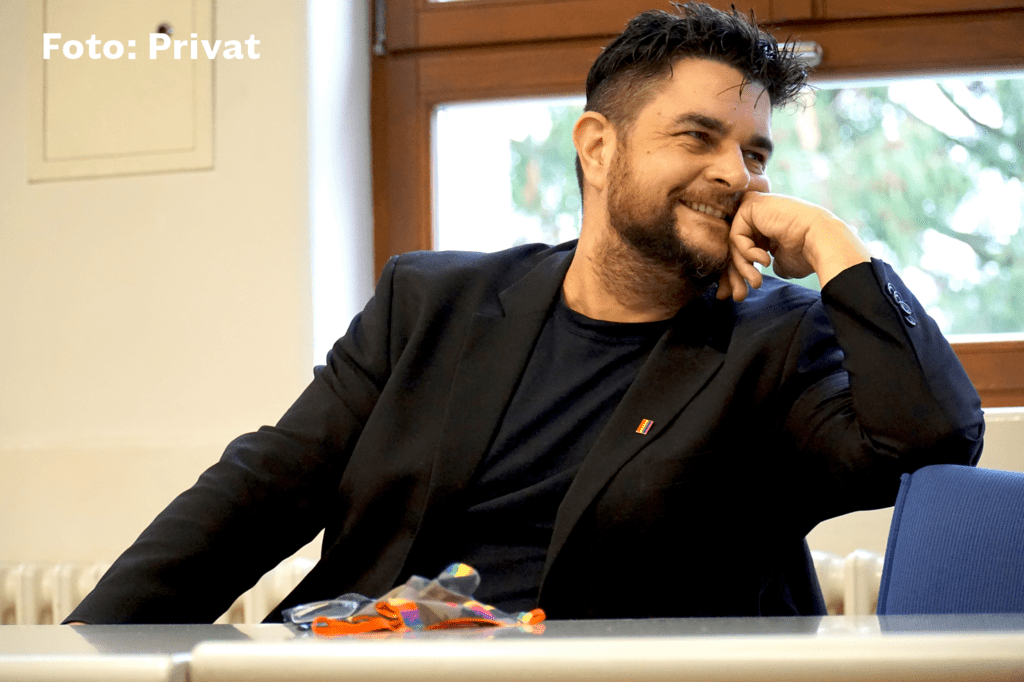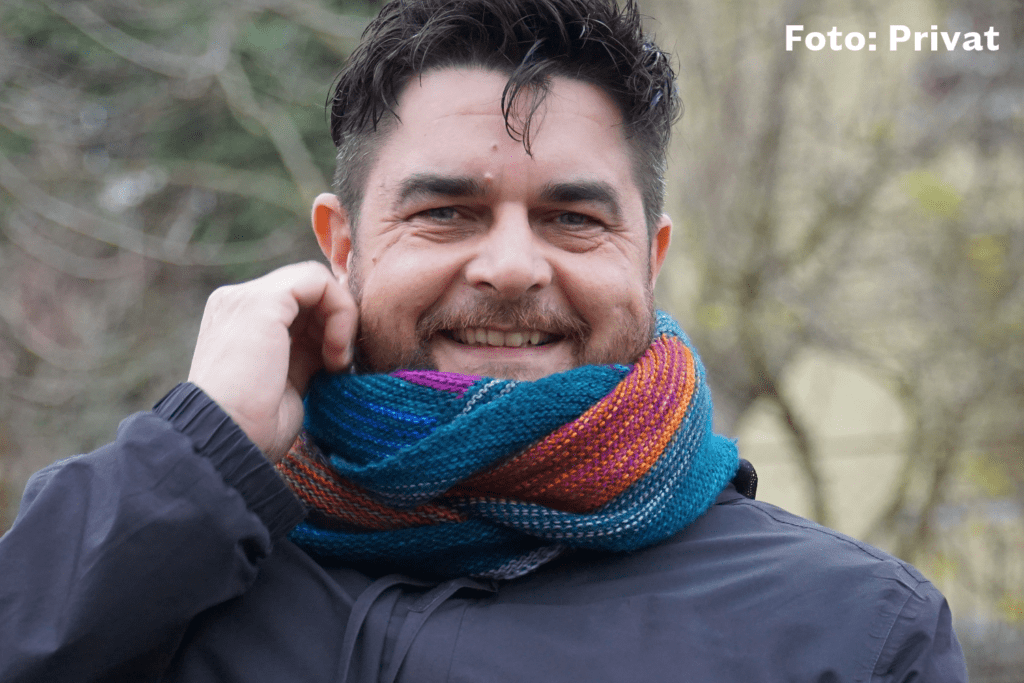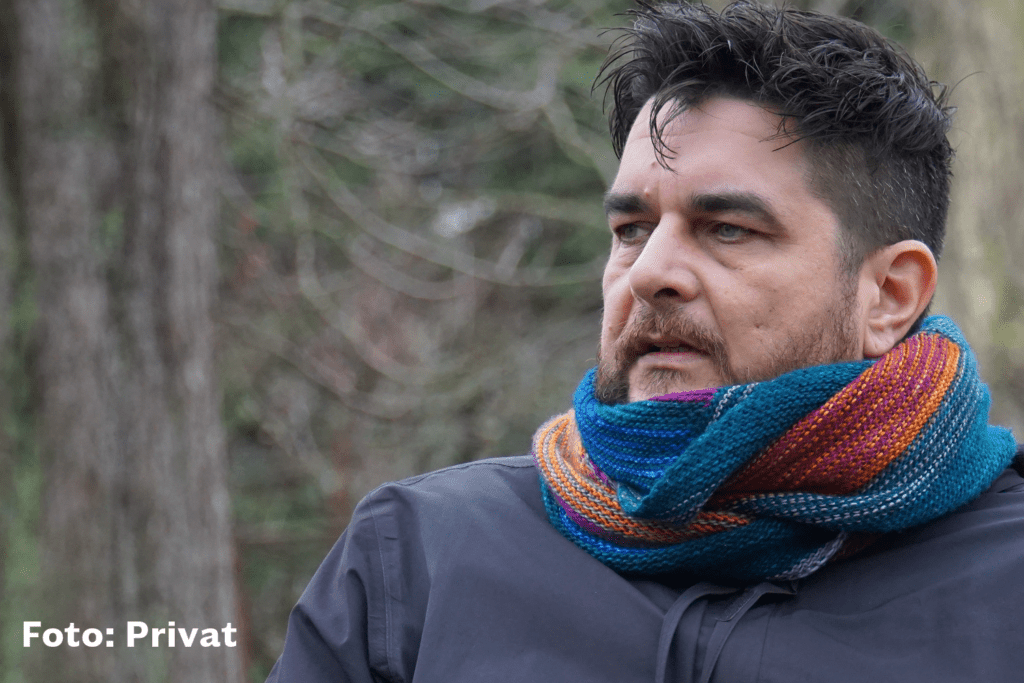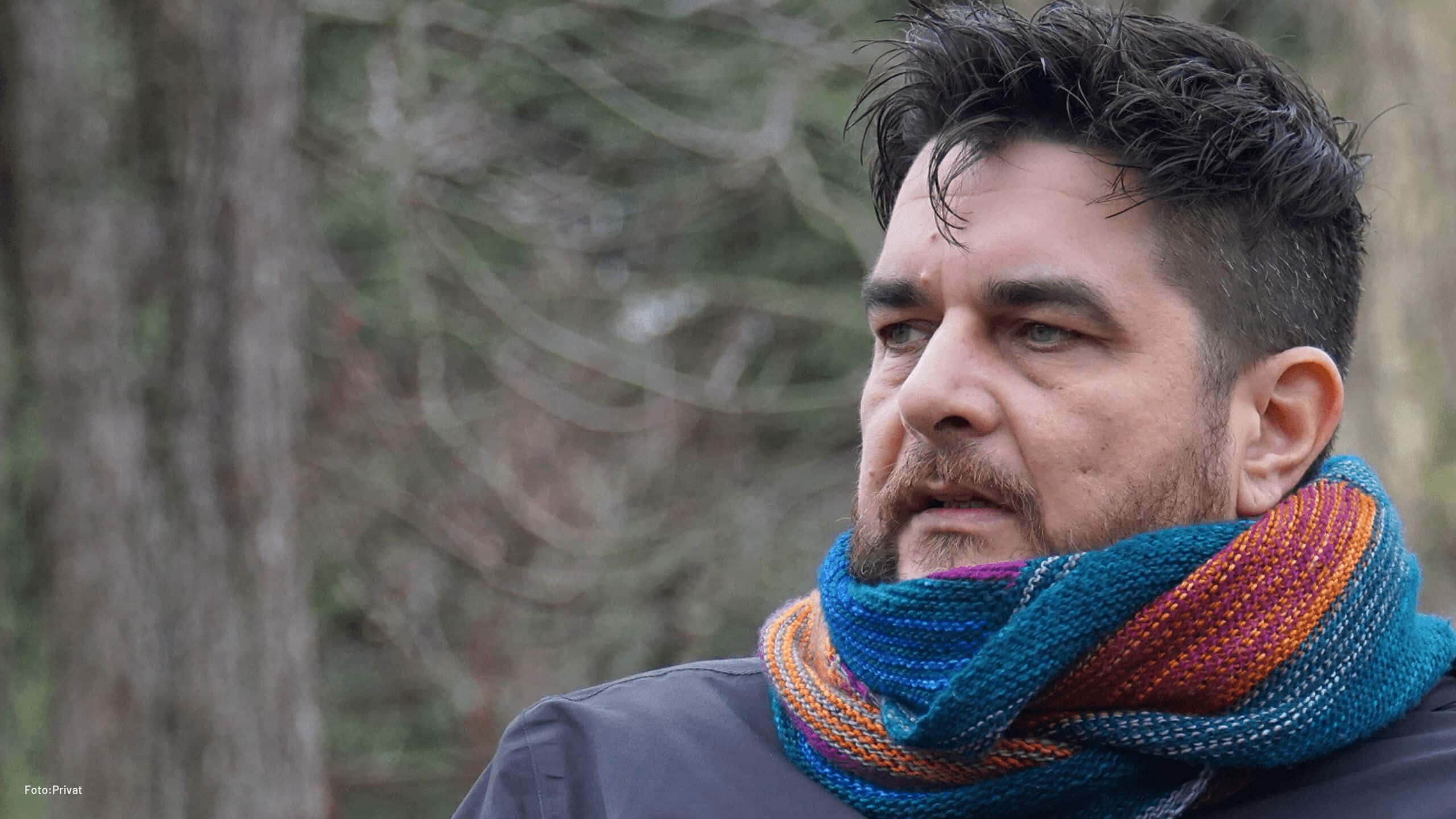Klemens Ketelhut is fighting for a complete ban on conversion therapies that supposedly "cure" gays. The 45-year-old knows from his own experience that this does not work. As a teenager, he fell in with Christian fundamentalists who wanted to free him from his "demon". A true story without a happy ending.
With the dating show "Prince Charming", gay life has arrived in the mainstream. But the self-confident (and handsome) TV homos obscure the view of real life. And not every coming-out story ends with a happy couple in their dream villa.
Klemens Ketelhut, for example, is not particularly happy - and doubts that he is the only one who has "not arrived well in the gay world". "There are many coming-out stories like mine - not all of them end well." That's why the Leipzig native has decided to tell his story here, with all its contradictions and a chapter that still burdens him to this day. As a fairy tale, it would begin like this:
Once upon a time in the 1990s, when most people didn't have the internet and a Bavarian Minister of the Interior announced that gay marriage was no more a topic of discussion than "devil worship". Back then, Klemens was a teenager in the Swabian Forest and searching for the meaning of life. His family were believers, or at least more religious than most. Klemens and his two brothers went to the children's service every week, later became involved in the youth group and spent their holidays on Christian youth camps.
Religion as rebellion
Klemens sought God even more intensely than the rest of his family. He learnt about free-church Christianity through the school Bible study group. He immersed himself in the Holy Scriptures and attended worship services. At these services, people sing and pray so intensely that they feel they are filled with the Holy Spirit. "I went against my parents and their Protestant church," recalls the now 45-year-old. "If you're a young person looking for your own approach to the world, charismatic faith is always more attractive than a small church in the Swabian Forest."
Klemens travelled with friends from this fundamentalist environment to a youth camp on an island in the North Sea for a fortnight. The volunteer counselling team came from an evangelical-charismatic church - and followed an evil plan. "They had obviously colluded," says Klemens looking back. Shortly after arriving, the group leader took Klemens aside for the first time and told the 15-year-old that he was possessed by a demon. He had already looked "lustfully" at another boy on the bus. "They kept telling me that I had to be cured. Otherwise I would go to hell." Until then, Klemens had only spoken to one person about his sexual orientation, very carefully. Now the charismatic clique forced him to come to terms with his sexuality - even before his own coming out.
Demon on the North Sea island?
On one of the following days, the boy is the only one who has to stay at the holiday home while everyone else goes on an excursion. "There was a kind of decision that I wanted to exorcise the demons with their help," admits Klemens. But what freedom of choice does a teenager have who is being pressured by adult carers? Travelling without his brothers for the first time, on a remote island? "You no longer have a choice, especially if you believe in it."
So Klemens submits to the treatment. He doesn't want to reveal any details because the event still upsets him three decades later. "I don't have a complete memory of it either." Klemens can only reconstruct this much: He was locked up for a whole day, always surrounded by five to seven adults. "At certain times, I didn't know whether I would get out of that room alive."
"It wasn't therapy, but psychological, physical and sexual violence."
After Klemens had survived the day of horror, he was euphoric: the demon had been banished and he was part of the group again. It was only after a few weeks that he began to have doubts. He still finds boys more exciting than girls. But he doesn't confide in anyone. His panicked thought: what would happen if his parents complained to the travel organisation? "I was so afraid of coming into contact with the group leader again. He was a threatening person. Today I just hope that the old man died miserably."
Every coming out is a good experience
Klemens rarely puts it so harshly. As a university lecturer, he is practised at giving lectures. He also usually speaks objectively about the abuse he had to endure. His conclusion: "Back then, I wanted to belong. Today I say: it wasn't therapy, but psychological, physical and sexual violence. It's crass to isolate a 15-year-old and make him believe he's a danger to everyone. That's evil!"
As a teenager, however, Klemens did not yet recognise evil as clearly as he does today. He continued to be involved in his church: "It wasn't a break, but a process of detachment. But today I would say that the abuse was the beginning of the end of my charismatic career."
Encouraged by the example set by his superior, Klemens came out at his job at the time.
After Klemens moved to a larger city for his training, he gradually made peace with his sexual orientation. If his life story were a fairy tale, a fairy godmother would have come into play: his first supervisor. He not only trained him in curative education, but also set an example that you can be openly gay and happy at the same time. "We were in a staff theatre group together and did music and cabaret," Klemens remembers. "That was just great. He took me by the hand a bit." Encouraged by his role model, Klemens came out at his job at the time. Many more coming-outs followed, with family and friends, and they all went well: "I never had the experience of people rejecting me afterwards."
Activism against prejudice
As committed as he was as a teenager in the church community, Klemens is now committed to the queer community. In his early 20s, he organised summer camps with the Lambda youth network. The big difference: young people are not manipulated there, but encouraged to respect themselves and others.
Later, after moving to Leipzig, Klemens worked with the "Rosa Linde" association, particularly on the educational project "Love shows its colours". It helps young people to overcome prejudices against queer people, especially through personal encounters with people of the same age who are already out.

Today, the doctor of educational science researches gender and queer studies, among other things. Together with the Magnus Hirschfeld Federal Foundation Klemens is developing a counselling service for other "survivors" of conversion therapies that are supposed to "cure" queer young people. "Many want to make their homosexuality go away when they are young and don't yet know any positive role models," surmises Klemens. "Our aim is to provide a prevention programme that helps anyone who wants to leave a total community - whether that's evangelicals, Salafists or Nazis."
Bundestag bans "polarity reversals"
Just recently, Klemens' story took another fairytale turn. His personal commitment - and that of his many allies - led to an important victory in the fight against fundamentalism: in May 2020, the Bundestag banned conversion therapies and made it clear that such "polarity reversals" cause severe suffering, both physically and mentally. The new law is intended to better protect minors in future from what happened to Klemens when he was 15. "This partial ban would probably have helped me back then," Klemens surmises. "Queer children and young people today shouldn't have to experience something like that! That's why I'm getting involved."

After this political success at the latest, Klemens' life story is suitable as a template for a streaming series. The plot: a teenager is abused by evil adults. But after coming out, he fights with the help of his queer community until a law prohibits such behaviour. In the meantime, he falls in love with a fellow campaigner, the two get married, and if they haven't died...
Creating a better world
But Klemens wouldn't recognise himself in such a modern fairy tale: "I haven't found a friend to support me," he explains. "I've been single for 17 years and have to help myself out of everything." It can't be due to a lack of contacts that Klemens can't find a man for life. "I get to know a lot of people through my commitment," reports Klemens, "but when it comes to flirting or having sex, I often don't feel safe enough. For me, the gay community remains a dangerous place." The abuse still characterises his life today, although the evangelical exorcism was only a short chapter.
"We also have to look after those who are not happy after coming out",
demands Klemens Ketelhut.
"Such experiences are like landmines in the psyche," explains Klemens, "they can explode decades later." Klemens was diagnosed with post-traumatic stress disorder two years ago. He is now undergoing specialised psychotherapy - and is talking about his experiences for the first time in interviews. His not at all fairytale life story is intended to encourage everyone who is in a similar situation to him. "We also have to look after those who are not happy after coming out," Klemens demands. Even their difficult stories are part of reality in a free Europe.
For Klemens, his latest coming out is also an appeal to all gay men to be more lenient with each other: "It would be nice if we stopped putting each other down just because someone doesn't shave their bum," says Klemens. "Instead, we could think together about how we can make the world a better place for our younger brothers and sisters." Klemens has to laugh because it sounds so pathetic. But every good story needs a moral - a happy ending, on the other hand, is unnecessary.
Philip Eicker

More information about Klemens' story
Continue listening: In the Podcast "Y-collective" in the ARD Audiothek, Klemens and others talk about how they were cured of their homosexuality.
Background to the ban on conversion treatments in Germany and worldwide
In Germany, there has been a legal ban on conversion treatments for people under the age of 18 since 2020. The law "applies to all treatments carried out on humans that are aimed at changing or suppressing sexual orientation or self-perceived gender identity" (§1, para. 1, Law to protect against conversion treatments).
It is not only prohibited to carry out such treatments, but also to advertise, offer and broker such services. In addition, a Special counselling service under the umbrella of the Federal Centre for Health Education are created.
In particular, the restriction of the ban to under-18s is also criticised in this country.
This makes Germany only the fourth country in the world - after Brazil, Ecquador and Malta - to ban conversion treatments nationwide. Other countries have such a ban, at least in certain regions.
You can find an overview of the current status worldwide at ILGA World (Information in English and Spanish).










